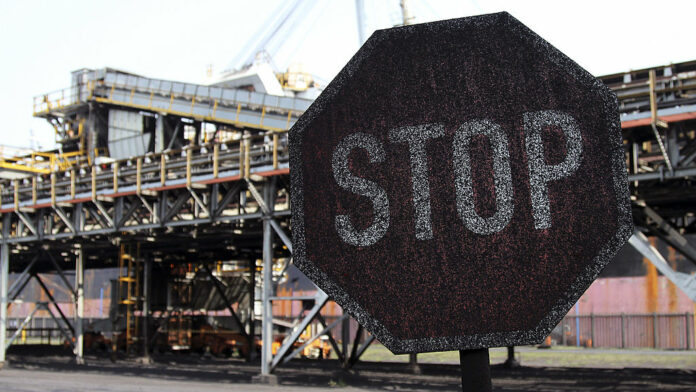
COAL exports through the Richards Bay Coal Terminal (RBCT) fell even further last year after 2022’s abysmal performance with the 2023 throughput of 47.21 million tons taking the terminal back to below levels last seen in 1992 when 48.59Mt was exported.
The terminal had exported 50.35Mt in 2022 and these levels compare with its overall annual capacity of 91Mt and the all-time record export volume of 76.47Mt achieved in 2017.
The drop was expected – despite the forecast of getting back to 60Mt made in January last year by RBCT CEO Allan Waller – because it was signalled in advance by major coal exporters from about May/June onwards. In mid-December major exporter Thungela Resources stated flatly that exports were expected to be 47Mt for 2023.
And that’s where it gets interesting because – after two years of hopelessly over-optimistic forecasts – Waller is calling export volumes for 2024 through the terminal at 50Mt.
That’s despite the forecast from Transnet Freight Rail (TFR) acting chief executive Russell Baatjies who told today’s presentation that TFR’s plan was to get railage volumes back to 60Mt for 2024.
Baatjies is “acting” because his former boss TFR CEO Siza Mzimela quit in October following the earlier resignation of her boss Transnet CEO Portia Derby in September.
In December 2022 the Minerals Council had called for the removal of both executives because of Transnet’s continuing and chronic underperformance on all three main commodity export lines for coal, iron ore and manganese. This was costing the mining companies tens of billions of rands in foregone export revenues because they could not get their production railed to the ports
Obvious question to RBCT chairperson Nosipho Damasane was this “has RBCT management seen any improvement in Transnet’s performance since the departure of those two executives. The answer was clearly yes.
“One of the biggest things that the acting executive has given us is that we have actually managed to sign a collaboration agreement which is a big breakthrough for the industry because it gives us meaningful participation in assisting Transnet and the RBCT to move more volumes on that (rail) corridor,” said Damasane.
“For me, what has changed drastically over the last three to four months since we have had the new, acting executive team has been getting back to the stage of saying ‘how does industry assist?’
“What this team has clearly displayed is that in the space of four months we have signed an agreement that allows us to co-operate which has already delivered two of the initiatives that were on the table.
“We are working on four other initiatives on the line. So we do feel there is a serious change of commitment and improvement in the way we engage with Transnet right now. Their response has really improved.”
The presentation included graphics showing a stabilisation of TFR’s performance and slight uptick in the railage rate for the fourth quarter of last year.
Hopefully, this year the long sought after turnaround by TFR will finally materialise showing Waller to be following a time-honoured management technique which is to under promise and over deliver.
Said Waller: “I would personally like to believe that 50Mt is conservative. We understand there’s a recovery but that it’s not necessarily going to be as quick as we think it could be. There are still a number of unknowns in this process.”









